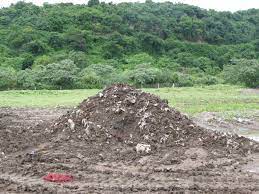Preventive Measures to Reduce Pesticide Residues In vegetables and Fruits
Different types of pesticides are used in different countries for different types of crops to prevent pests, insects, and weeds. Because of the expansion of worldwide trade, more foods, which are treated by pesticide are being imported into different countries.
These worldwide trades increase the expansion of pesticide residues in different areas of the world and it is the issue of public health concern. There are a number of strategies, which can be used to minimize pest and disease problems and reduce pesticide residues in food grains, vegetables and fruits.
1. Organic Farming
One of the methods used to reduce the effect of pesticide residue in food is to eat organic foods than non-organic ones. According to standard meta-analyses the frequency of occurrence of detectable pesticide residues was four times higher in non-organic crops than organic crops (Baranskiet al., 2014).
There is evidence that indicated organic food consumption can reduce exposure to pesticide residues in food. Organic crops, on average, have higher concentrations of antioxidants and a lower incidence of pesticide residues than the non-organic foods across regions and production seasons.
It is advisable to consume foods rich in antioxidant to reduce effects of the chronic disease by suppressing oxidative activity. An increased dietary intake of antioxidant rich foods protect against chronic diseases, including cardio vascular diseases, certain cancers (e.g. prostate cancer) and neurodegenerative diseases.
Read Also : Pesticide Conversion Mechanisms in the Environment Non-Enzymatic Conversion
2. Washing Food Products
The second methods reported to reduce pesticide residue in food is washing. Washing may reduce pesticide residue in food commodities.
Washing with water and various chemical solutions for domestic and commercial applications is necessary to decrease the pesticide residues.
The efficiency of the washing treatments on pesticide removal depends on the washing solution, the chemical properties of the pesticide, the surface area, the nature of the food, the length of time the pesticide is in contact with the food, and the formulation and application method of the pesticide.
Usually, the pesticide is lodged in the outer wax-like layers and then moves to the inside, making washing and removal of the pesticides less effective (Al-Taher etal., 2013).
3. Processing Food Products
An important factor leading to a reduction of any residues left on crops at harvest are processing treatments such as washing, peeling, canning or cooking that the majority of foods receive prior to consumption.
Pesticide residue levels in fruit and vegetables may change due to processing, such as peeling, boiling, frying, fermentation, grinding. Cooking also reduces pesticide residues in food; boiling may remove 35 – 60% of organophosphate residues and 20 – 25% of organo chlorines.
Husking and immersing of fruit and vegetables are reported to reduce pesticide residues especially organophosphates.
4. Rational Use of Pesticides
Rational use of pesticides involves selection of correct pesticides, dosage rates, dilutions, timing, and frequency of application, treatment intervals, and method of application, precautions, and limitations

Rational use of pesticides can be useful to reduce pesticide residues in food products. In many cases, there may not be any need of a pesticide, particularly where cultural or biological methods are effective.
5. Use of Natural Pesticides and Bio pesticides
Bio-pesticides are biodegradable so no harmful residues are produced and are eco-friendly. Bio-pesticides encompasses a broad array of microbial pesticides, biochemical’s derived from micro-organisms and other natural sources that confer protection against pest damage.
Some insect repellents can also be used for the prevention of pesticide residues accumulation in the food grains, vegetables and fruits (Gupta and Dikshit, 2010). Natural pesticides such as extracts and compounds from neem tree are also very useful for the prevention of pesticide residues accumulation in the food products.
Implementation and Amendment of Pesticide-related Laws
In India, the agriculture ministry regulates the manufacture, sale, transport, distribution, export, import and use of pesticides under the Insecticides Act, 1968. Still awaiting Parliamentary approval is the
Pesticide Management Bill of 2008, which is meant to replace the Insecticides Act, 1968. The pesticide-related laws should be implemented strictly and amended so as to reduce the cases of pesticide residues in food grains.
Read Also : Degradation and Types of Pesticides in Soils
In conclusion, the excess consumption of pesticides contributes in the accumulation of pesticide residues in food grains and vegetables associated with variety of human health hazards, including damage to central and peripheral nervous systems, cancer, allergies and hypersensitivities, reproductive disorders, and disruption of the immune system.
The impact of pesticide residues can be minimized by preventive measures such as rational use of pesticides, washing and proper processing of food products, practicing organic farming, use of natural pesticides and bio-pesticides, and strict implementation and amendment of pesticide-related laws.
Pesticide residues get into fruits and vegetables either through direct pesticide application to control pest and diseases on the field;
The extent of pesticide residues problems is aggravated by the fact that many fruit and vegetables are consumed directly with little or no processing.
Associated pesticide residues vary from crop to crop depending on the type of pesticide sprayed to enhance their quality.
Preventive measures in place to prevent health problems associated with pesticide residues in food includes organic farming, washing food products, processing food products, rational use of pesticides, use of natural pesticides and biopesticides, etc.



